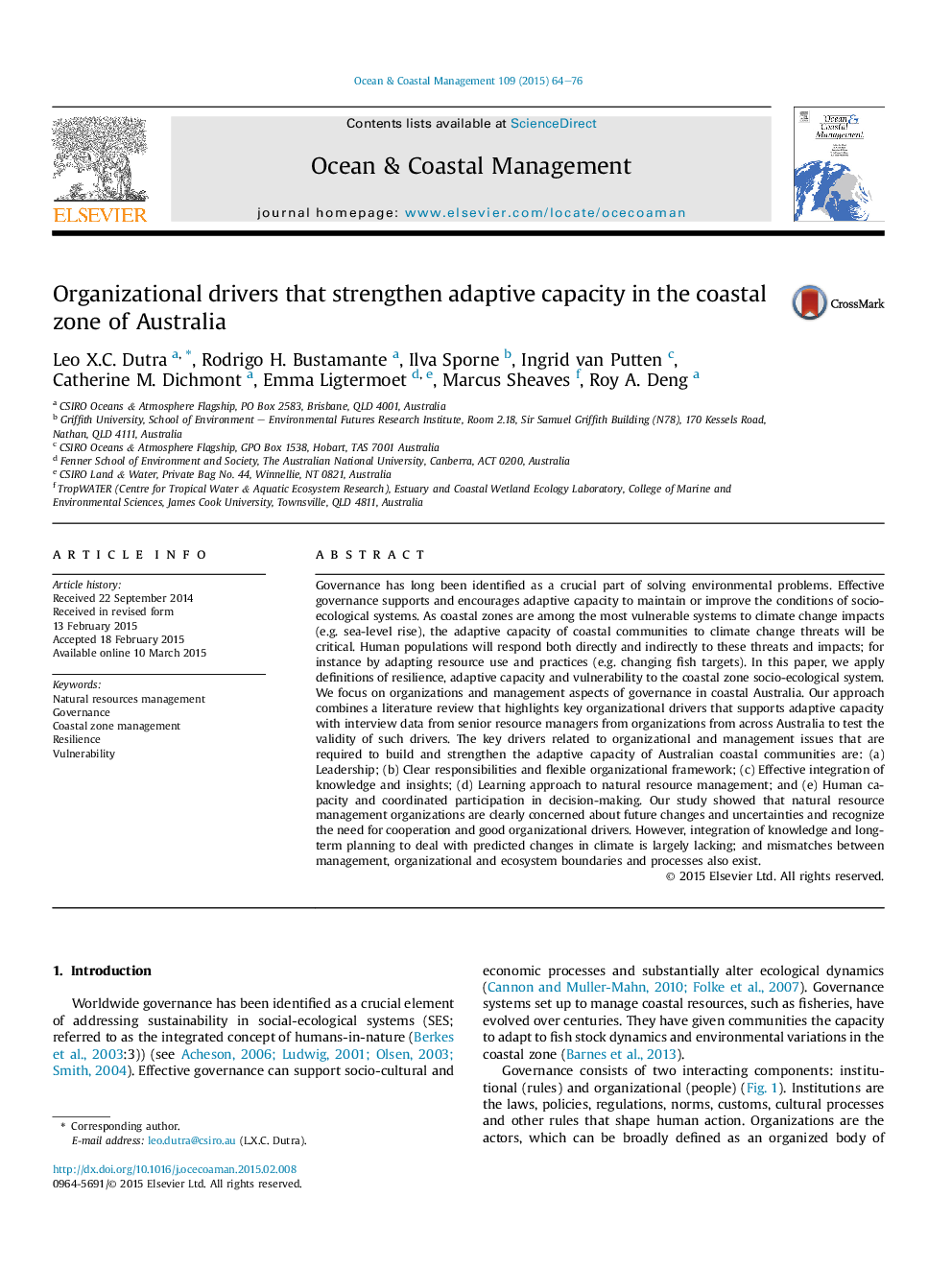| کد مقاله | کد نشریه | سال انتشار | مقاله انگلیسی | نسخه تمام متن |
|---|---|---|---|---|
| 1723492 | 1520519 | 2015 | 13 صفحه PDF | دانلود رایگان |
• Five key organizational drivers are necessary to build adaptive capacity in Australia.
• These drivers facilitate innovation and creativity; essential to respond adaptively.
• Mismatches between management, organizational and ecosystem boundaries threat adaptation.
Governance has long been identified as a crucial part of solving environmental problems. Effective governance supports and encourages adaptive capacity to maintain or improve the conditions of socio-ecological systems. As coastal zones are among the most vulnerable systems to climate change impacts (e.g. sea-level rise), the adaptive capacity of coastal communities to climate change threats will be critical. Human populations will respond both directly and indirectly to these threats and impacts; for instance by adapting resource use and practices (e.g. changing fish targets). In this paper, we apply definitions of resilience, adaptive capacity and vulnerability to the coastal zone socio-ecological system. We focus on organizations and management aspects of governance in coastal Australia. Our approach combines a literature review that highlights key organizational drivers that supports adaptive capacity with interview data from senior resource managers from organizations from across Australia to test the validity of such drivers. The key drivers related to organizational and management issues that are required to build and strengthen the adaptive capacity of Australian coastal communities are: (a) Leadership; (b) Clear responsibilities and flexible organizational framework; (c) Effective integration of knowledge and insights; (d) Learning approach to natural resource management; and (e) Human capacity and coordinated participation in decision-making. Our study showed that natural resource management organizations are clearly concerned about future changes and uncertainties and recognize the need for cooperation and good organizational drivers. However, integration of knowledge and long-term planning to deal with predicted changes in climate is largely lacking; and mismatches between management, organizational and ecosystem boundaries and processes also exist.
Journal: Ocean & Coastal Management - Volume 109, June 2015, Pages 64–76
